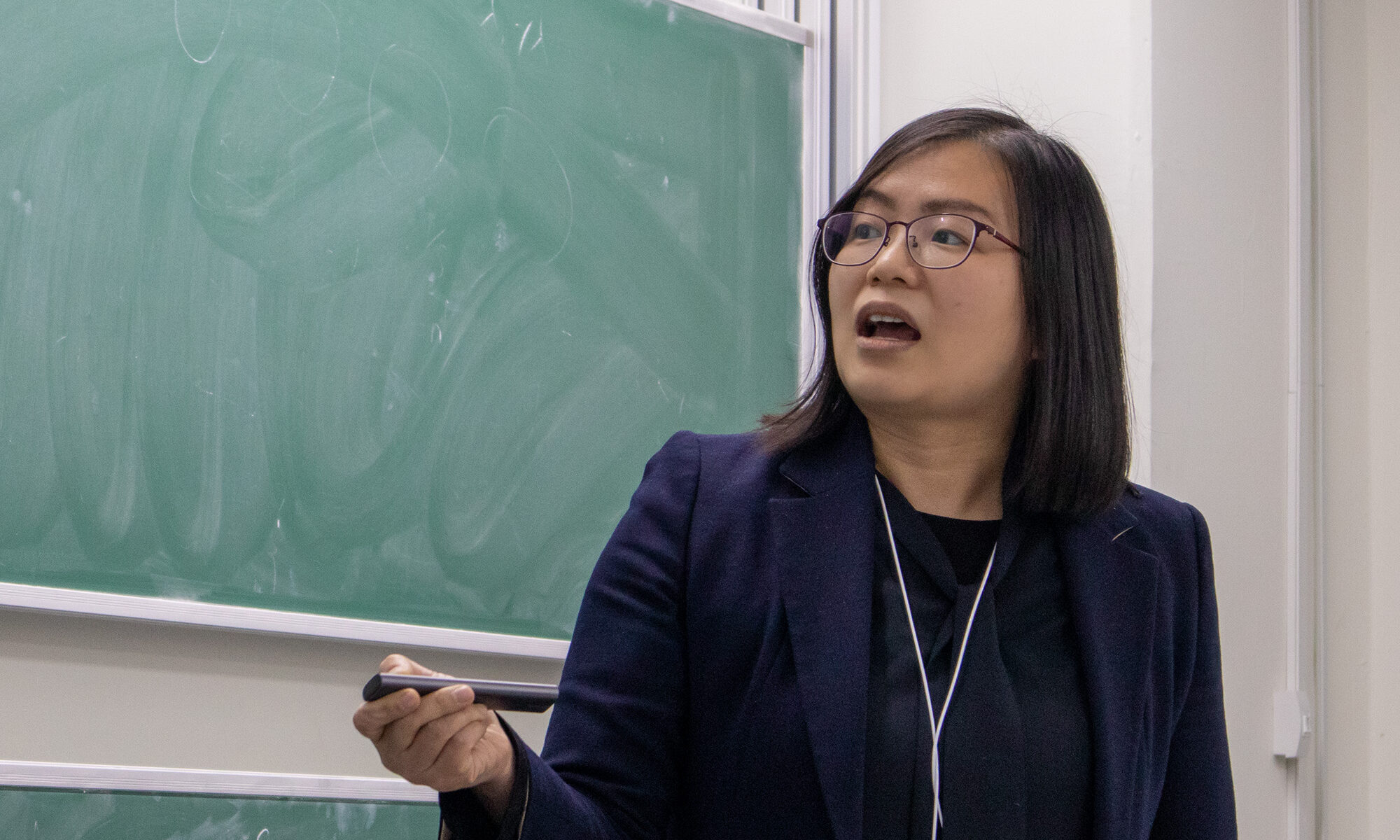On March 21, 2023, Younjin Kim (김연진) from the IBS Extremal Combinatorics and Probability Group gave a talk at the Discrete Math Seminar on the overview of her results in extremal combinatorics. The title of her talk was “Problems on Extremal Combinatorics.”
Welcome Younjin Kim (김연진) and Minho Cho (조민호), new members of the IBS Extremal Combinatorics and Probability Group
The IBS discrete mathematics group welcomes Dr. Younjin Kim (김연진) and Dr. Minho Cho (조민호), new research fellows at the IBS Extremal Combinatorics and Probability Group.
Dr. Younjin Kim received her Ph.D. from UIUC in 2011 under the supervision of Prof. Zoltan Furedi.
Dr. Minho Cho received his Ph.D. from KAIST in 2023 under the supervision of Prof. Andreas Holmsen.
Both start their positions on March 1.
Younjin Kim (김연진), Problems on Extremal Combinatorics
Extremal Combinatorics studies the maximum or minimum size of finite objects (numbers, sets, graphs) satisfying certain properties. In this talk, I introduce the conjectures I solved on Extremal Combinatorics, and also introduce recent extremal problems.
Younjin Kim (김연진) gave a talk on the number of k-dimensional corner-free subsets in the k-dimensional grid at the Discrete Math Seminar
On April 11, 2022, Younjin Kim (김연진) from POSTECH gave a talk at the Discrete Math Seminar on the number of k-dimensional corner-free subsets of the k-dimensional grid {1,2,…n}^k. The title of her talk was “On the extremal problems related to Szemerédi’s theorem“.
Younjin Kim (김연진), On the extremal problems related to Szemerédi’s theorem
In 1975, Szemerédi proved that for every real number $\delta > 0 $ and every positive integer $k$, there exists a positive integer $N$ such that every subset $A$ of the set $\{1, 2, \cdots, N \}$ with $|A| \geq \delta N$ contains an arithmetic progression of length $k$. There has been a plethora of research related to Szemerédi’s theorem in many areas of mathematics. In 1990, Cameron and Erdős proposed a conjecture about counting the number of subsets of the set $\{1,2, \dots, N\}$ which do not contain an arithmetic progression of length $k$. In the talk, we study a natural higher dimensional version of this conjecture, and also introduce recent extremal problems related to Szemerédi’s theorem.




